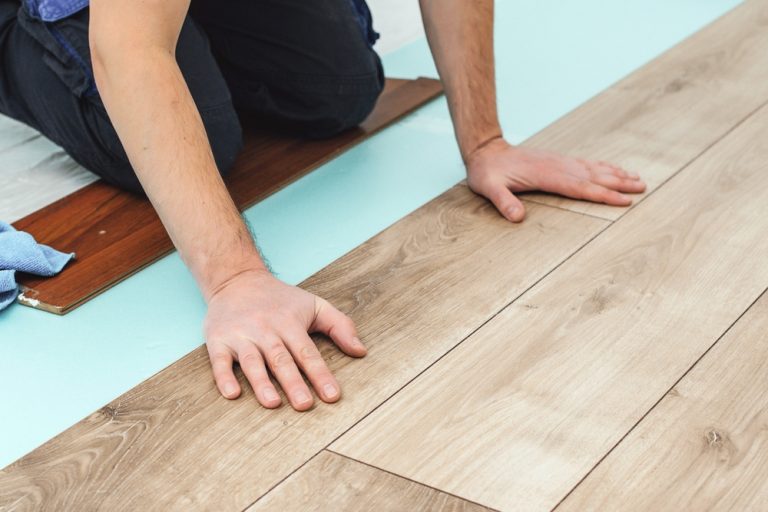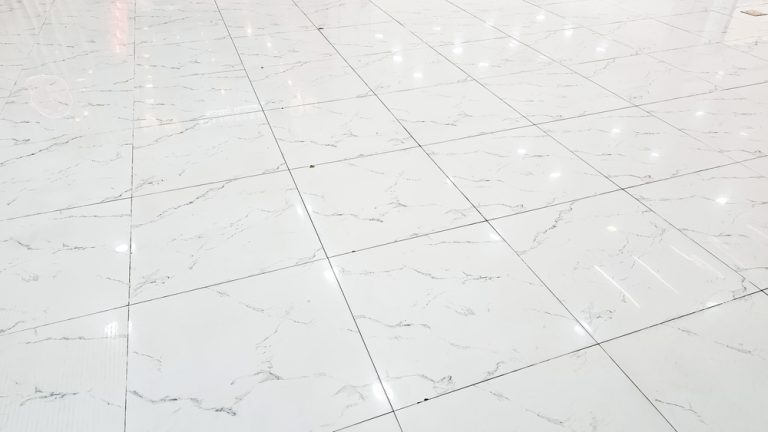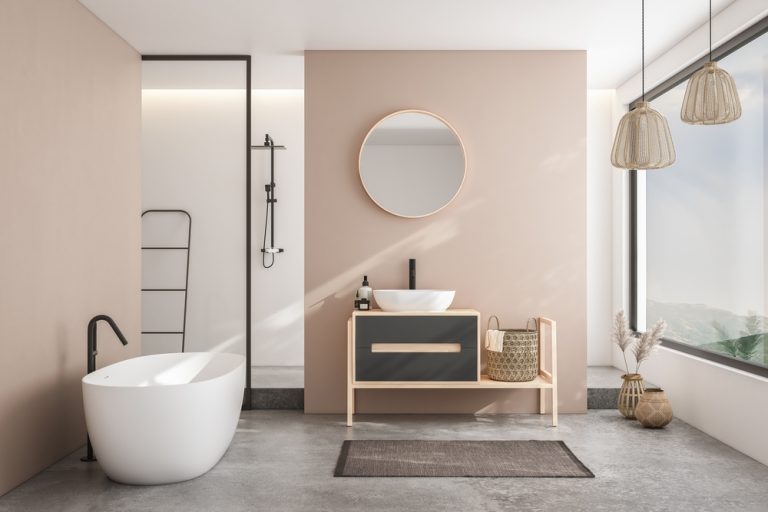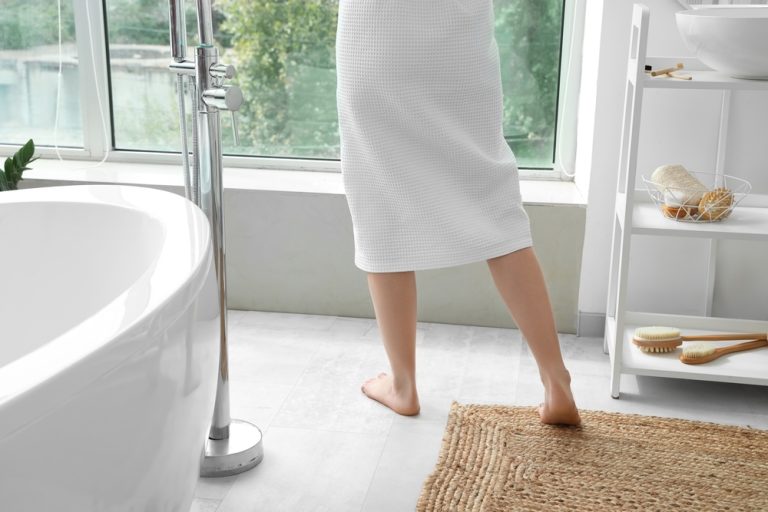Is Vinyl Plank Flooring Good for Bathrooms?
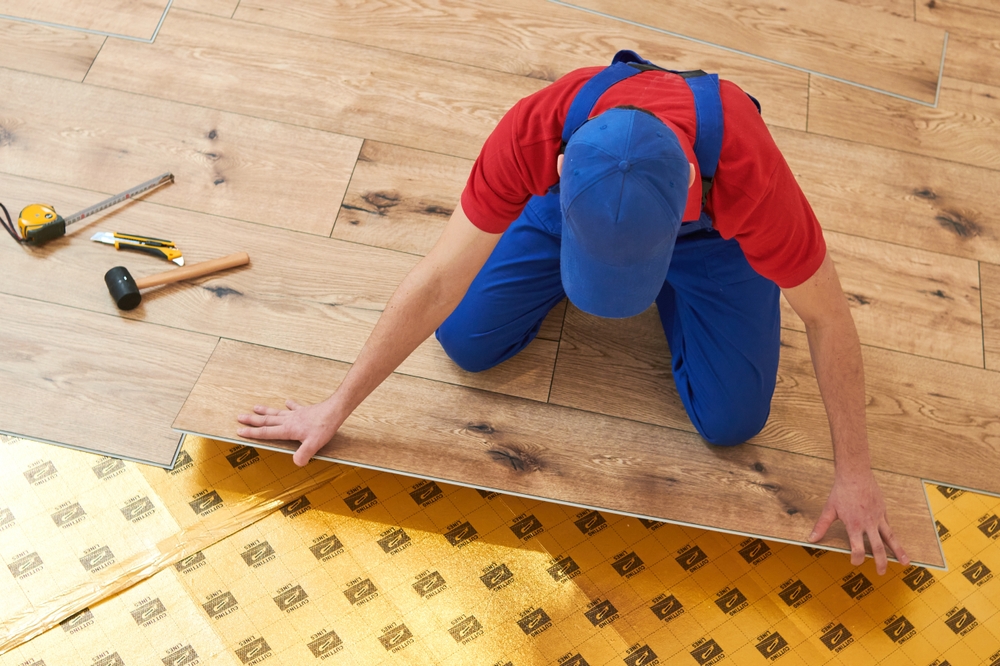
When selecting flooring for a bathroom, moisture resistance, durability, and aesthetics are key considerations. One flooring option that has gained popularity in recent years is vinyl plank flooring. But the big question is: Is vinyl plank flooring good for bathrooms? Vinyl plank flooring offers an attractive, affordable, and practical solution, especially in areas where water exposure is frequent.
In this blog, we’ll explore the benefits, potential drawbacks, and why vinyl plank flooring might be the perfect choice for your bathroom.
What Is Vinyl Plank Flooring?
Vinyl plank flooring is a type of synthetic flooring designed to mimic the appearance of hardwood. It consists of multiple layers that contribute to its water resistance, durability, and overall comfort underfoot. These layers typically include:
- Wear Layer: The topmost protective layer that prevents scratches, dents, and other damage.
- Design Layer: A high-resolution image that replicates the look of wood, stone, or tile.
- Core Layer: The core of the plank, which can either be made of wood-plastic composite (WPC) or stone-plastic composite (SPC), both of which provide stability and strength.
- Backing Layer: The bottom layer that adds extra durability and cushioning.
Vinyl plank flooring has become increasingly popular in high-moisture areas like bathrooms because of its waterproof properties and ease of maintenance.
Is Vinyl Plank Flooring Good for Bathrooms?
The simple answer is yes—vinyl plank flooring is an excellent choice for bathrooms. It combines the best of style, practicality, and functionality, making it well-suited for the unique challenges that come with a bathroom environment. Here’s why vinyl plank flooring stands out in bathrooms:
Water Resistance
One of the key features that make vinyl plank flooring suitable for bathrooms is its waterproof nature. Vinyl is impervious to water, meaning it won’t absorb moisture or warp like traditional wood flooring. This makes it ideal for bathrooms, where water exposure is inevitable due to showers, sinks, and bathtubs.
- Waterproof Vinyl Planks: Most modern vinyl plank flooring options are designed to be 100% waterproof. This ensures that the floor will withstand not only the occasional spill but also the constant exposure to steam and humidity typical of a bathroom.
Durability
Vinyl plank flooring is highly durable and can withstand heavy foot traffic. This is particularly important in bathrooms, where moisture and frequent use can wear down lesser flooring materials. With its durable wear layer, vinyl is resistant to scratches, dents, and stains, making it a long-lasting option for high-use spaces like bathrooms.
Comfort and Warmth
Unlike tile or stone flooring, which can feel cold underfoot, vinyl plank flooring offers a softer and warmer feel. This is especially appreciated in bathrooms, where bare feet are common. Additionally, many vinyl plank floors come with an attached underlayment, which adds extra cushioning and insulation, enhancing the comfort of the floor.
Installation Benefits of Vinyl Plank Flooring in Bathrooms
Another reason vinyl plank flooring is a good choice for bathrooms is its ease of installation. Whether you choose to install it yourself or hire a professional, vinyl planks are known for their straightforward installation process.
Floating Installation
Many vinyl plank floors use a “click-lock” system, where the planks snap together and float above the subfloor. This method doesn’t require nails or glue, making it a cleaner and quicker installation process, especially in a bathroom where you may want to avoid adhesives that could be affected by moisture.
DIY-Friendly
If you’re a DIY enthusiast, vinyl plank flooring is a great option. The planks can be easily cut with a utility knife, and the interlocking system makes installation manageable even for beginners. As a result, you can save on installation costs by doing it yourself.
Also Read – Can You Put Laminate Flooring in a Bathroom?
Potential Drawbacks of Vinyl Plank Flooring in Bathrooms
While vinyl plank flooring is a great choice for bathrooms, there are a few potential drawbacks to consider:
Slipperiness When Wet
Vinyl plank flooring can become slippery when wet, which is a common concern in bathrooms. However, many vinyl planks are designed with textured surfaces that provide slip resistance. Be sure to choose a vinyl product that offers this feature if bathroom safety is a priority.
Subfloor Preparation
To ensure a smooth and durable installation, the subfloor must be level and clean. If there are imperfections in the subfloor, they can transfer to the surface of the vinyl planks, affecting both the appearance and longevity of the floor. Proper subfloor preparation is essential to a successful installation.
Longevity Compared to Tile
While vinyl plank flooring is durable, it may not last as long as traditional tile flooring. Tile can last for decades, whereas vinyl plank flooring has a typical lifespan of around 10 to 20 years, depending on maintenance and wear. However, given the lower cost and ease of replacement, this may not be a significant concern for many homeowners.
Maintenance and Care for Vinyl Plank Flooring in Bathrooms
One of the biggest advantages of vinyl plank flooring in bathrooms is how easy it is to maintain. Unlike natural stone or wood, vinyl requires minimal upkeep to keep it looking its best.
Cleaning
Vinyl plank flooring is simple to clean. A regular sweeping or vacuuming, combined with occasional damp mopping using a vinyl-safe cleaner, will keep your bathroom floor in top condition. Avoid using abrasive cleaners or steam mops, as these can damage the wear layer of the vinyl.
Preventing Scratches
Although vinyl is resistant to scratches, it’s a good idea to take preventative measures, especially in high-traffic areas like bathrooms. Placing mats near the sink, toilet, or tub can protect the floor from water splashes and prevent wear.
Long-Term Care
To prolong the life of your vinyl plank flooring, avoid using harsh chemicals or abrasive tools when cleaning. If a plank gets damaged, it can be easily replaced without needing to redo the entire floor, which is another advantage of vinyl.
Is Vinyl Plank Flooring Right for Your Bathroom?
Choosing vinyl plank flooring for your bathroom comes down to a balance of aesthetics, budget, and practicality. Here’s a quick recap of why it’s a good choice:
- Waterproof: Perfect for the high-moisture environment of a bathroom.
- Durable: Holds up well to daily wear and tear.
- Comfortable: Warmer and softer underfoot compared to tile.
- Easy to Install: Ideal for DIY enthusiasts and quick renovations.
- Low Maintenance: Requires minimal upkeep compared to other flooring materials.
If these benefits align with your bathroom renovation goals, vinyl plank flooring could be an excellent option for you.
Conclusion
So, is vinyl plank flooring good for bathrooms? Absolutely. Its water-resistant properties, durability, and ease of installation make it an ideal flooring option for bathroom environments. While it may have some drawbacks, such as potential slipperiness or the need for careful subfloor preparation, the benefits far outweigh these concerns.
With proper installation and maintenance, vinyl plank flooring can transform your bathroom into a stylish and functional space.

